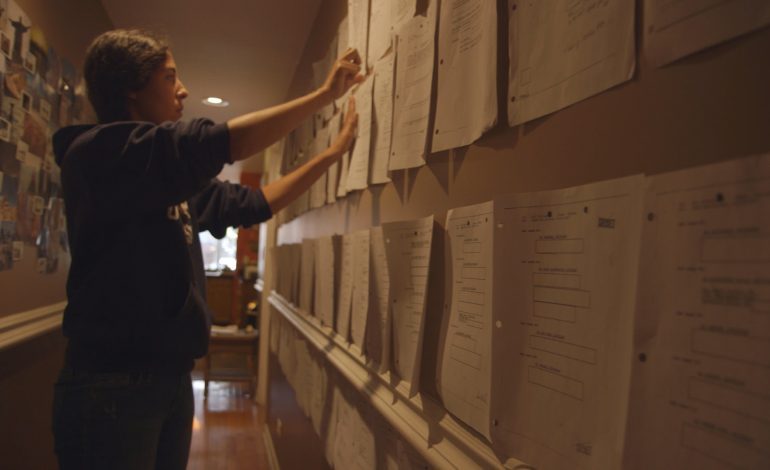

Some documentaries make you angry. Some make you scared. Others make you question things you took for granted or didn’t think about at all. Assia Boundaoui’s The Feeling of Being Watched does all of the above. The young journalist’s investigation into the monitoring of her hometown uncovers a massive surveillance program that brings up questions that should disturb every American. Why did this happen? Why didn’t we hear about it? Where else is this happening?
Assia Boundaoui grew up in the 90’s in Bridgeview, a suburb of Chicago, and home to one of the region’s largest masques and a tight-knit Muslim community. As a child, she remembers the FBI coming into her home and interviewing her mother, she remembers cars that would follow her friends and friend’s parents, and the general sense of paranoia that pervaded the community. Now a journalist with years of experience in public radio, Boundaoui returns home to investigate and soon discovers one of the largest pre-9/11 anti-terrorist investigations in history, code name: ‘Vulgar Betrayal’. In her research, history keeps overlapping with her past in increasingly disturbing ways. She soon discovers that as a child, she lived beneath the first man ever branded an Islamic terrorist in American. He was later exonerated. As Boundaoui’s investigation continues, she soon discovers that this surveillance hasn’t stopped, and suspects that she is now in the crosshairs of the FBI.
Watching The Feeling of Being Watched, it’s easy to feel like you’ve been dropped in an Orwellian nightmare, where the line between suspicion and paranoia is perilously thin. At one point during the investigation, the neighborhood finds itself locked down in the mosque under the guise of the armed robbery of a nearby bank. When it is discovered that no banks were robbed, Boundaoui and her family suspect they are being subjected to government drills to contain and control the community. The house Boundaoui moves into has a speed bump installed in front of it just a few days later. Maybe it was being installed anyway, or maybe it gives the FBI a reason to drive past her house slowly for surveillance. Boundaoui’s paranoia starts to feel a lot more like caution when she is contacted by Robert Wright, the FBI investigator in charge of ‘Vulgar Betrayal’.
Much of the film revolves around Boundaoui’s Freedom of Information Act requests and her subsequent lawsuit with the FBI. After several rejections, she learns that there are more than 31,000 pages of records relating to her community and when the government gives her a five-year timetable to release the documents, she sues to have the release expedited. There’s an inspiring social justice angle to Boundaoui’s film, and it shows the struggles of activism in a community that’s been the subject of persecution for decades. The question circling the documentary is whether the FBI was acting on that religious prejudice as the foundation of their investigation instead of actual intelligence. I think we can all intuit the answer, but can Boundaoui prove it? I wouldn’t bet against her.
Verdict: 4 out of 5
The Feeling of Being Watched is an invigorating, boots-on-the-ground piece of investigative journalism that feels raw and honest and important. Assia Boundaoui determination to search for the truth should be inspiring not just to journalists but to all Americans. Works like Boundaoui’s are vital to our democracy, especially in today’s socially and politically fractious climate. The Feeling of Being Watched can remind us what true patriotism looks like. It’s one of the best films about the importance of journalism in a long time and should be considered required viewing.
